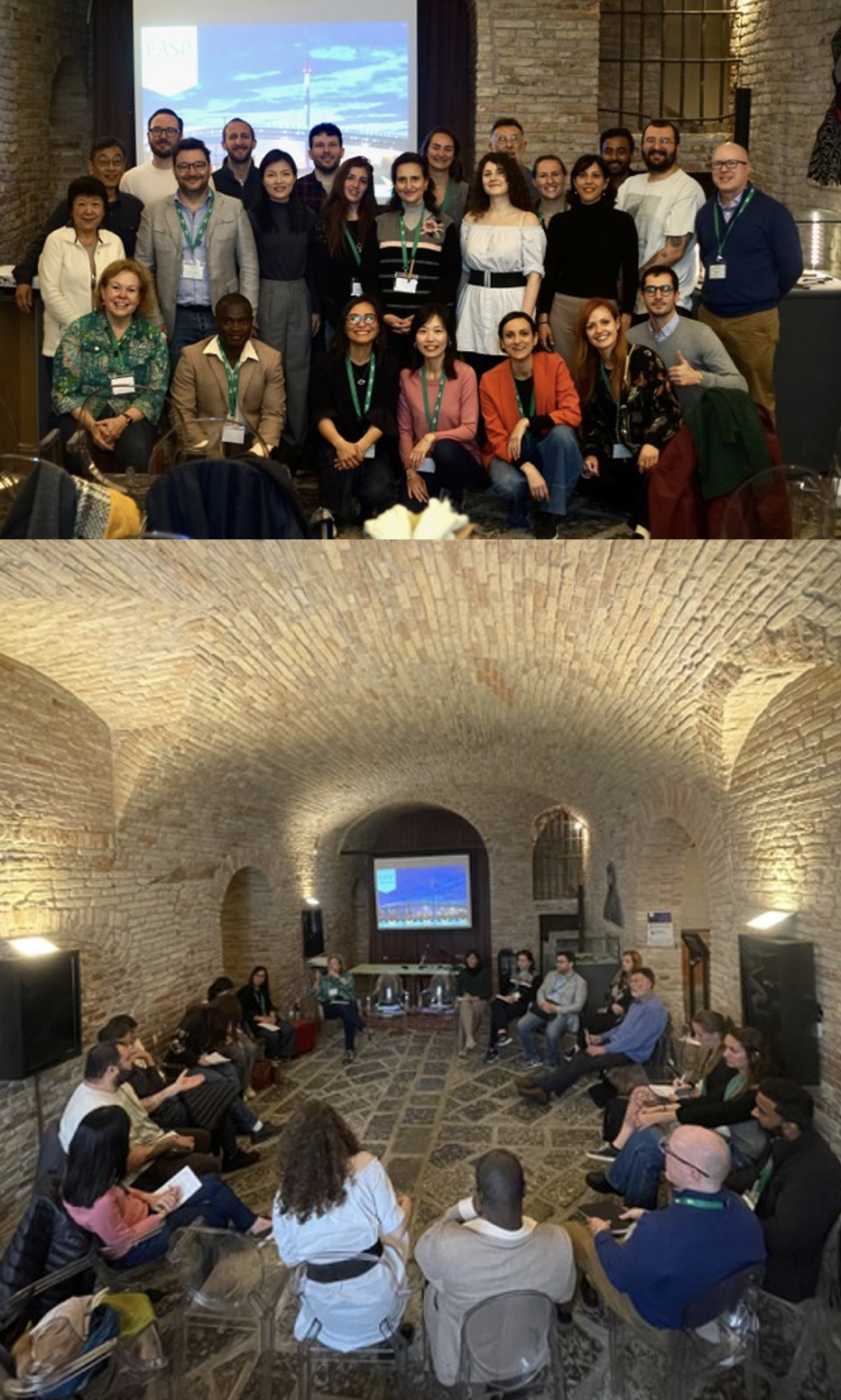Report on EASP Meeting
26.04.2024, by Media Account in meeting report
The role of dignity, face, and honour cultural logics in intrapersonal, interpersonal, and intergroup processes

Date/Location: April 17-19, 2024 at the Museo delle genti d’Abruzzo, Pescara, Italy
Organizers: Ayse K. Uskul (University of Sussex), Stefano Pagliaro (University of Chieti - Pescara), Alexander Kirchner-Häusler (University of Sussex), and Shuxian Jin (University of Sussex)
The 2.5 day meeting brought together 21 leading and emerging scholars from 10 different countries (Cyprus, Spain, Italy, Kenya, India, New Zealand, Australia, the UK, the United States, the Netherlands) to discuss the role of dignity, honour, and face (DHF) cultural logics in intrapersonal, interpersonal, and intergroup processes. Participants consisted of PhD students, postdoctoral research fellows, assistant, associate, full, and emeritus professors, and 11 of them were EASP members. Some presenters were leading figures in this field of research, whereas others had recently started incorporating questions related to DHF in their research. The local organisation of the meeting was supported by a local team consisting of Ilara Giovanelli, Manuel Teresi, Chiara Ballone led by Stefano Pagliaro, all EASP members.
The tripartite distinction between honour, face, and dignity cultural logics has received growing attention and research interest in the study of diverse intrapersonal, interpersonal and intergroup psychological processes. However, to date there still exists a need for discussion and integration of the various conceptualizations and measurements of DHF cultural logics, of their role in shaping socio-psychological processes and outcomes, and of the interconnection between fundamental and applied research within the DHF framework. In this small group meeting, we aimed to bring together researchers from psychology and beyond to discuss the conceptualization and measurement of DHF logics, the mapping of world cultures on the prevalence of DHF constructs, and the country- and individual-level correlates and behavioural manifestations of DHF.
The meeting offered a state-of-the-art programme of oral presentations covering novel research on the DHF framework, providing a stimulating platform for intellectual exchange, constructive feedback, new collaborations, and for sparking a new research agenda on the role of the DHF framework in psychological processes across and within cultural groups. All attendees presented their most recent (in almost all cases unpublished) research on the topic of DHF logics in 25 min blocks, with dedicated time after each presentation for reflection, audience feedback, and discussion. Coffee breaks, lunches (both held at the meeting venue), and dinners offered further opportunities for discussion throughout the days.
The meeting started with presentations discussing different conceptualizations and measurement of honour, face, and dignity cultural logics and continued with the role of these cultural logics in interpersonal (e.g., apologies, secrets, interpersonal violence, sextortion, competition, coordination), intrapersonal (e.g., mental health outcomes, moral judgement, military service, stigma), and intergroup (e.g., political motivation, transitional justice beliefs) processes. Presentations linked these cultural logics with literatures in related fields including morality, close relationships, emotions, evolutionary theories, parenting practices, political psychology, mental health, behavioural economics, and economic inequality, among others, highlighting the usefulness of these constructs for a wide range of research taking place across diverse areas of social, health, cultural, and political psychology as well as using data from diverse geographic and cultural settings.
Presentations were complimented by a plenary discussion on the last day of the meeting in which participants discussed their observations about the current state of DHF research and how to move the field forward: Particular themes of discussion were what new questions can and should be explored and focused on, which underused methods could be helpful to do so, which novel connections can be made with other fields of research in psychological science and beyond, and how insights derived from DHF research can be put into practice to achieve positive change in human behaviour and institutions. In addition, participants were invited to submit their research to a special issue on the topic in the journal Current Research in Ecological and Social Psychology (CRESP) edited by the organisers based on this small group meeting.
The organisers of the meeting would like to thank EASP, the School of Psychology at the University of Sussex, the Department of Neuroscience, Imaging and Clinical Sciences at the University of Chieti-Pescara, the Italian Association of Psychology and other private sponsors (YourPlace Abruzzo and Ambulatorio Dentistico Sebastianelli) for their support and contributions to allow a meeting which did not have to rely on registration fees from attendees. Thanks to these contributions we were also able to support the travel and accommodation expenses of five attendees (from India, New Zealand, Kenya, and two from the US) who would not have been able to join the meeting without such support.